I’ve got a thorny relationship with the French development studio Cyanide.
It’s not that their games are necessarily bad — 2018’s Call of Cthulhu was at least playable — but they’re often strange, like game design from an alternate universe. You don’t so much review them as you sift through them in search of the black box.
Rogue Lords is no exception. It’s Cyanide’s entry into the increasingly crowded “indie roguelike/card game” genre, alongside other 2021 releases like Across the Obelisk, Griftlands, Black Book (sort of), and Roguebook. At some point, it seems like we should start calling these “Spirelikes.”
As with the other Cyanide games I’ve played, Rogue Lords features that blend of odd decisions, overcomplication, and lack of polish that usually gets labeled as “Eurojank.” Again, games with high levels of Eurojank aren’t necessarily bad — Gamedec is Eurojank as all hell — but they’re typically weird experiences. There’s a lot in Rogue Lords I like, but just as much that I do not understand.
Rogue Lords Review: Make Way for the Bad Guys
So yeah, you’re the Devil in this one. Happy Halloween.
Decades ago, you and your public-domain horror minions lost the final battle between good and evil, and you holed up in Hell to recover as best you could. A few years later, the flow of souls to Hell has slowed to a crawl, so you’ve got no choice but to bust back out and see what’s going on.
It turns out that the demon hunters who banished you have started a new religion, the Sancta Lumen, with your archenemy Van Helsing at its head. The forces of good are closing their grip.
Now you’ve got to gather your last few surviving disciples — Dracula, the Headless Horseman, and Bloody Mary — and send them out in search of various surviving dark artifacts.
What I appreciate is that this isn’t what I thought it’d be, which is some Dragonlance Kingpriest of Istar thing, where good and evil are cosmically required to stay in balance or bad things happen. Rogue Lords’s Devil has no valid points or redeemable qualities. He is a cackling cartoon villain who would like to remain as such, and will murder hundreds to make sure that happens.
Weaponized Depression
In play, Rogue Lords isn’t that hard to get, but it does come off as too complicated by half.
You can field a crew of up to three monsters, which you send into the field in search of each needed artifact. Each chapter of gameplay is a randomized map full of fights, minibosses, encounters, treasures, and potential bonuses, where you must carefully balance risk and reward. Even early on, elite encounters are rough, but beating one can earn you a tremendously useful relic.
Each character has up to five skills that you can initially employ, spending their costs from a starting energy pool of 5. A skill you use is considered “depleted,” but each character also has a base active ability that you can use on your turn to recharge their current skill pool.
Rogue Lords treats skills in much the same way as other games like this treat cards; they aren’t entirely interchangeable, but they’re close enough.
Your characters also have five non-combat stats, such as Stealth, Occultism, and Ruse, which govern their chance of success in various random non-combat encounters. Success there can result in passive bonuses for the rest of the given stage, such as more health or small damage boosts, so they’re well worth seeking out, as well as being darkly funny in their own right.
What takes a lot of getting used to is that every character in Rogue Lords has what amounts to two health bars: HP and SP. Deplete either to zero, and a character is made vulnerable. Land one more hit against the depleted stat, and the character is knocked out.
The requirement for that last hit opens the door to some really degenerate strats, because a character can’t be reduced past zero HP/SP with a single big hit. It makes multi-hit attacks (i.e. Dracula’s Midnight Kiss) very useful, and it really changes how you react to enemies’ offense.
One big bruiser who’s swinging for 50+ damage per strike isn’t necessarily as dangerous as a little guy who’s going to hit three times a turn.
In theory, these two health bars exist to force you into keeping a varied arsenal of moves. Generally, HP reflects physical health, while SP is mental strength. Many enemies will reliably have much less of one than the other, and outside of a couple of skill synergies, there’s rarely any point in diminishing both HP and SP at once.
In practice, I didn’t really get anywhere in Rogue Lords until I was able to put together a decent SP-targeting build, primarily because there’s a status ailment called Depression that is flat-out busted. It hits a target with SP damage right before and right after their action, like a poison or bleed effect but better.
Once I had a couple of skills on Bloody Mary that could hit an entire enemy party with Depression, it felt like I’d disengaged Rogue Lords‘ parking brake. I was leaving a trail of bummed-out corpses from hell to breakfast. I made a bunch of hapless rank-and-file Sancta Lumen so sad that they died.
The Devil in the Details
The other habit that I had to break before I felt like I understood Rogue Lords is that it’s not as concerned with overall resource conservation as many other recent roguelikes. Your characters receive full HP/SP at the start of each fight and get all their skills recharged between battles, so you can go all out against each new pack of enemies.
The only resource that you have to manage, outside of basic currency, is diabolic essence, which sits in the upper left-hand corner of the screen. If any of your characters drop in a fight, you automatically spend diabolic essence to keep them on their feet and fighting.
The trick is that you can also spend diabolic essence to cheat in almost every part of the game. In combat, you can burn essence to heal your characters, damage your opponents, and move status effects from character to character. Outside of combat, you can use essence to tweak skill checks in random encounters to boost the chance that a given action will succeed.
Any individual use of essence tends to be surprisingly cheap, even if you do something nuts like reduce an elite enemy’s HP to zero, but it’s difficult to replenish in the field. It’s easy to go wild with your essence a couple of times too many, then start a run-of-the-mill fight that ends up being a surprise game over.
That actually happens a lot. The Eurojankiest part of Rogue Lords is the lack of elegance in how it presents the player with information. Much like Black Book, it has a real passion for constantly introducing more complications to combat, such as new buffs and debuffs, with a crowded UI that makes it difficult to obtain useful data at a glance. I had a boss fight where my Dracula was capped at 1 SP the entire time, and I still have no idea why.
It’s also got a strange sense of timing by comparison to other games in its genre-pool. Rogue Lords consists of an introductory level followed by six big stages that make up its campaign. Each of the latter stages can take a couple of hours to complete, even if you’ve got an overpowered build going and you’re reasonably decisive about your choices.
One of the things I like about “Spirelikes” — I’m making it a thing — is how bite-size they are, where they move fast and take little time to play. Rogue Lords combines a genuine time commitment with the same high chance for random, sudden failure.
Rogue Lords Review — The Bottom Line
Pros:
-
Cheating as a game mechanic
-
A great Halloween game, full of atmosphere and gleeful evil
-
The character designs and animation are a lot of fun
-
It has achieved maximum, near-toxic levels of Goth
-
Once it clicks, it’s decent
Cons:
-
It can take a while before it clicks, though
-
It doesn’t feel like it respects your time
-
Incredibly uneven difficulty curve
-
Cluttered UI
-
Dracula is basically a required party member
I saw Cyanide’s name on Rogue Lords so I probably went into it with a chip on my shoulder. It eventually won me over with its Tales From the Crypt atmosphere, which let me play it long enough to start finding strategies that I could make work.
It’s still a dramatically flawed game. Rogue Lords needs a lot more polish before I could feel comfortable recommending it. The UI’s messy, the pacing is off, and it makes itself hard to get into, with overcomplicated mechanics presented in obscure, difficult-to-interpret ways.
I like its atmosphere and the glee it takes in letting you be evil, but if I wasn’t reviewing it, I probably would’ve dropped Rogue Lords after the first hour. There’s fun to be had here if you can push through it, but like a lot of Eurojank games, it doesn’t feel like it’s entirely finished.
[Note: Nacon provided the copy of Rogue Lords used for this review.]

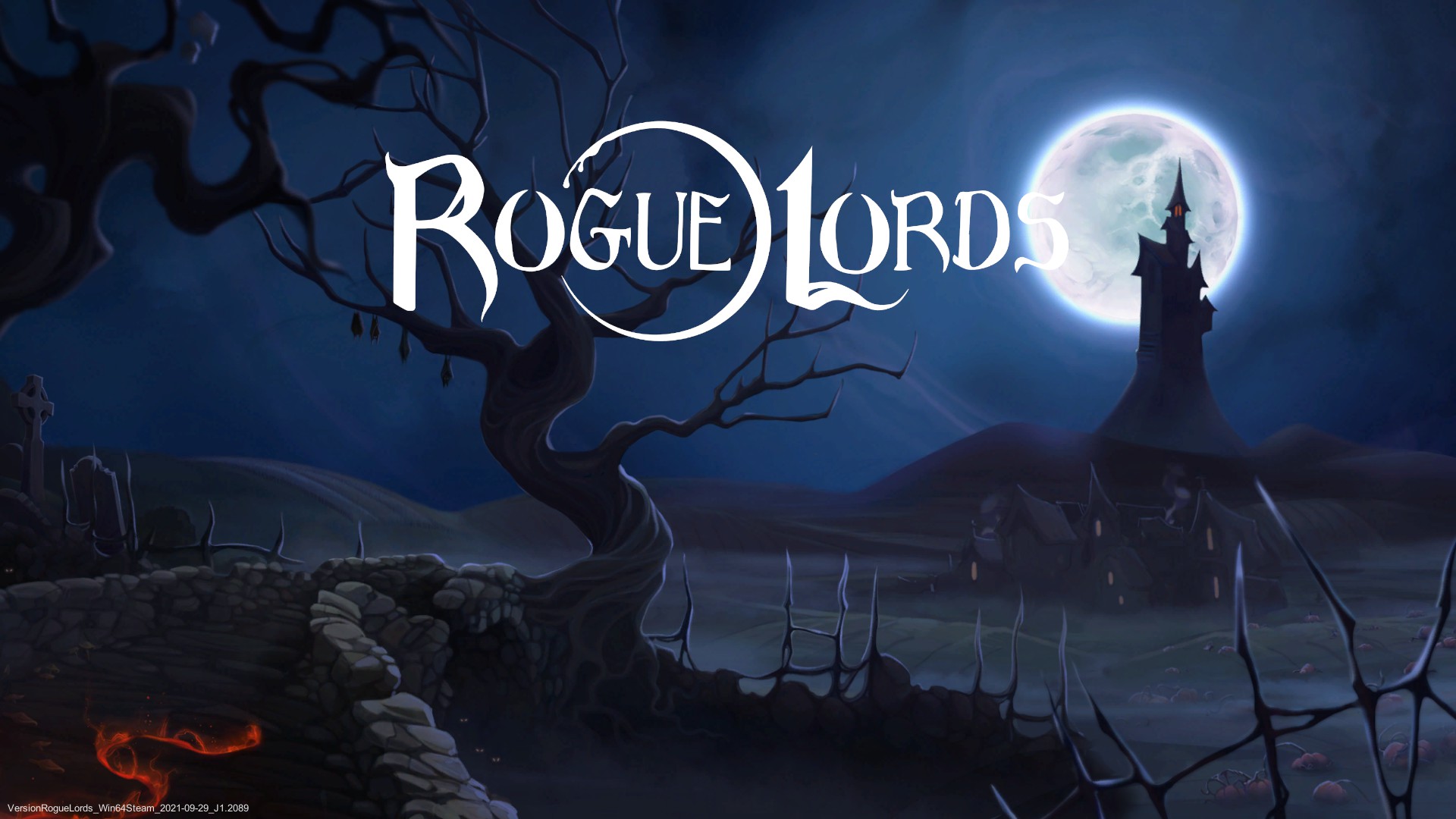
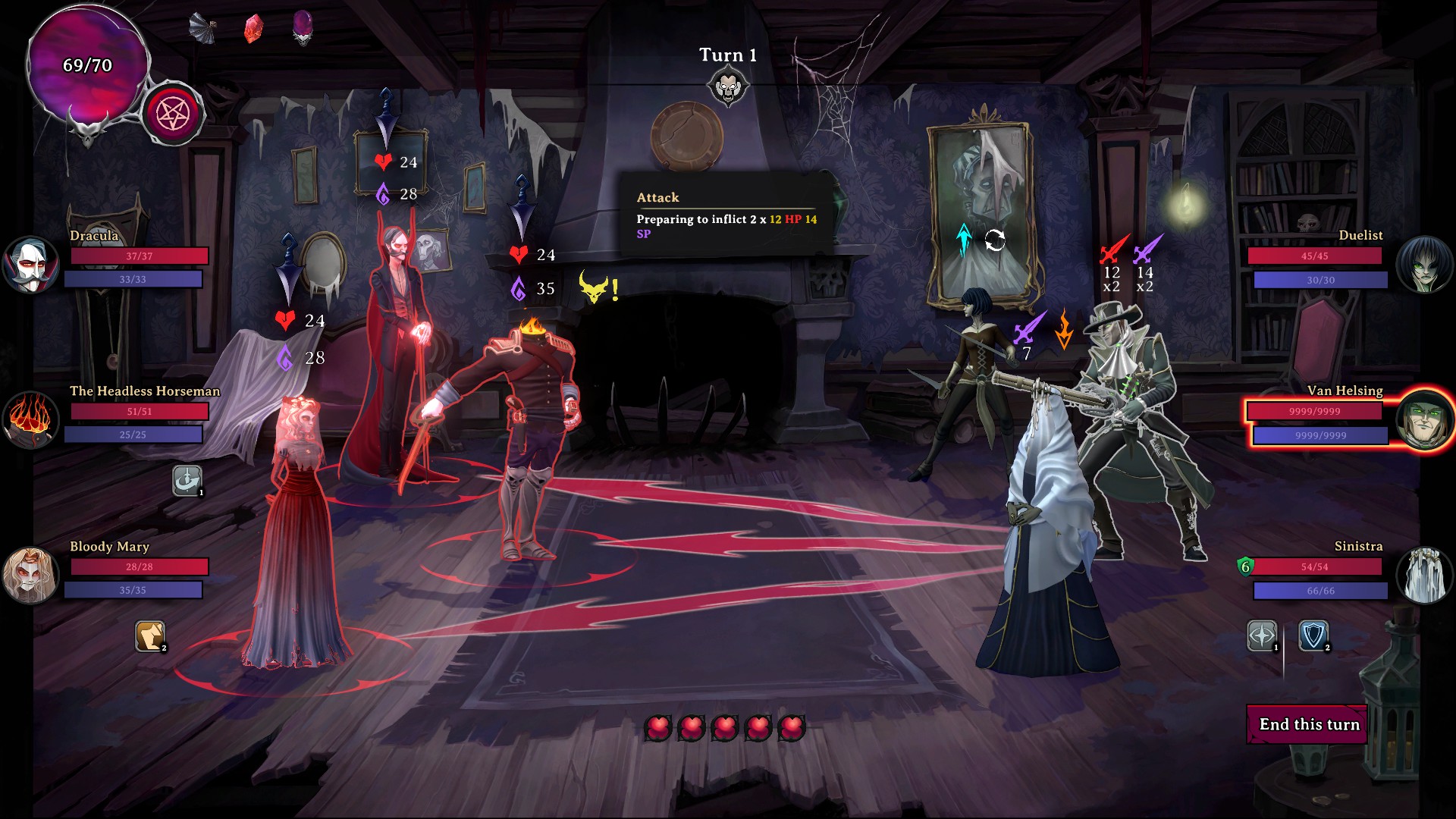
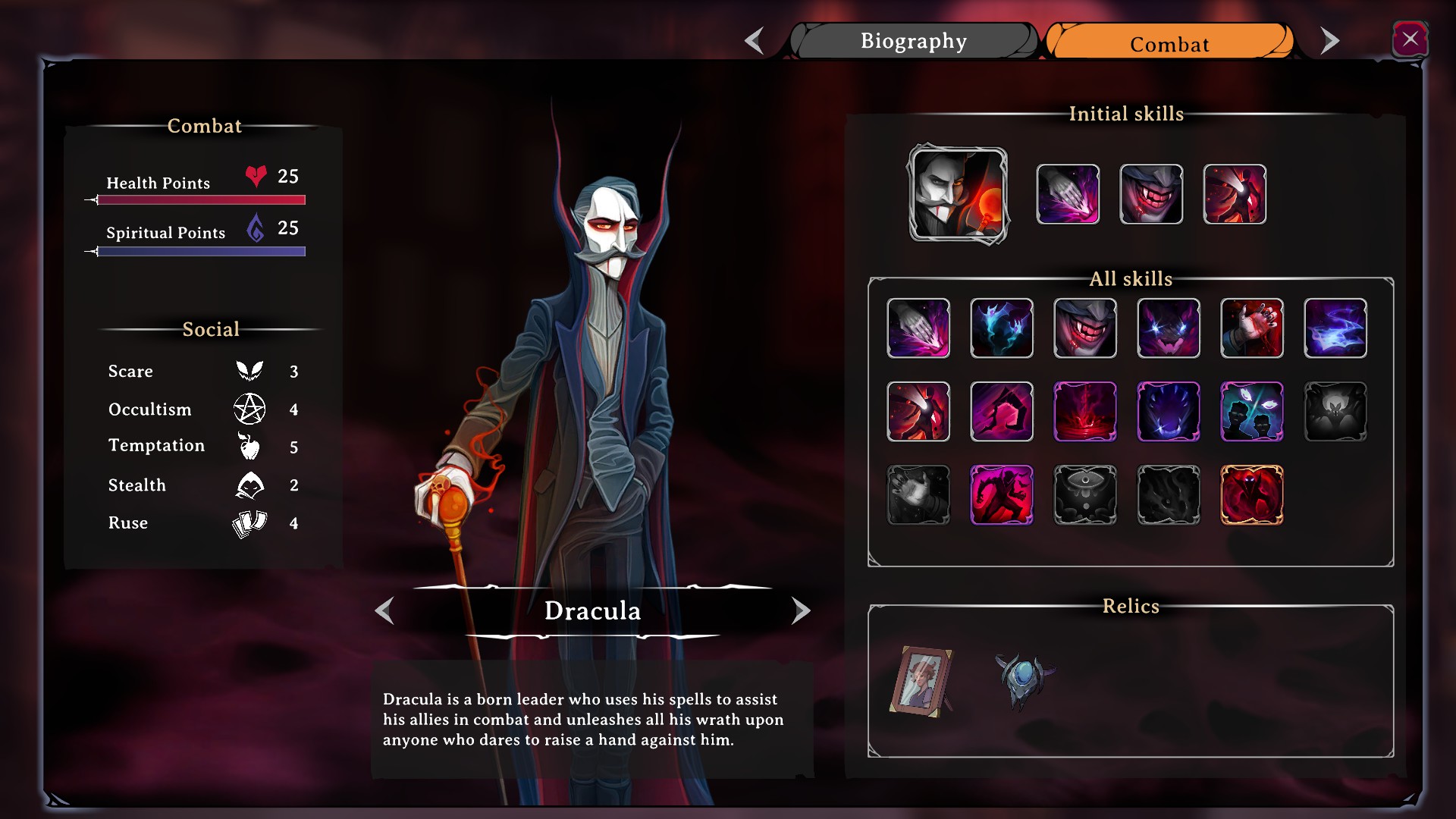
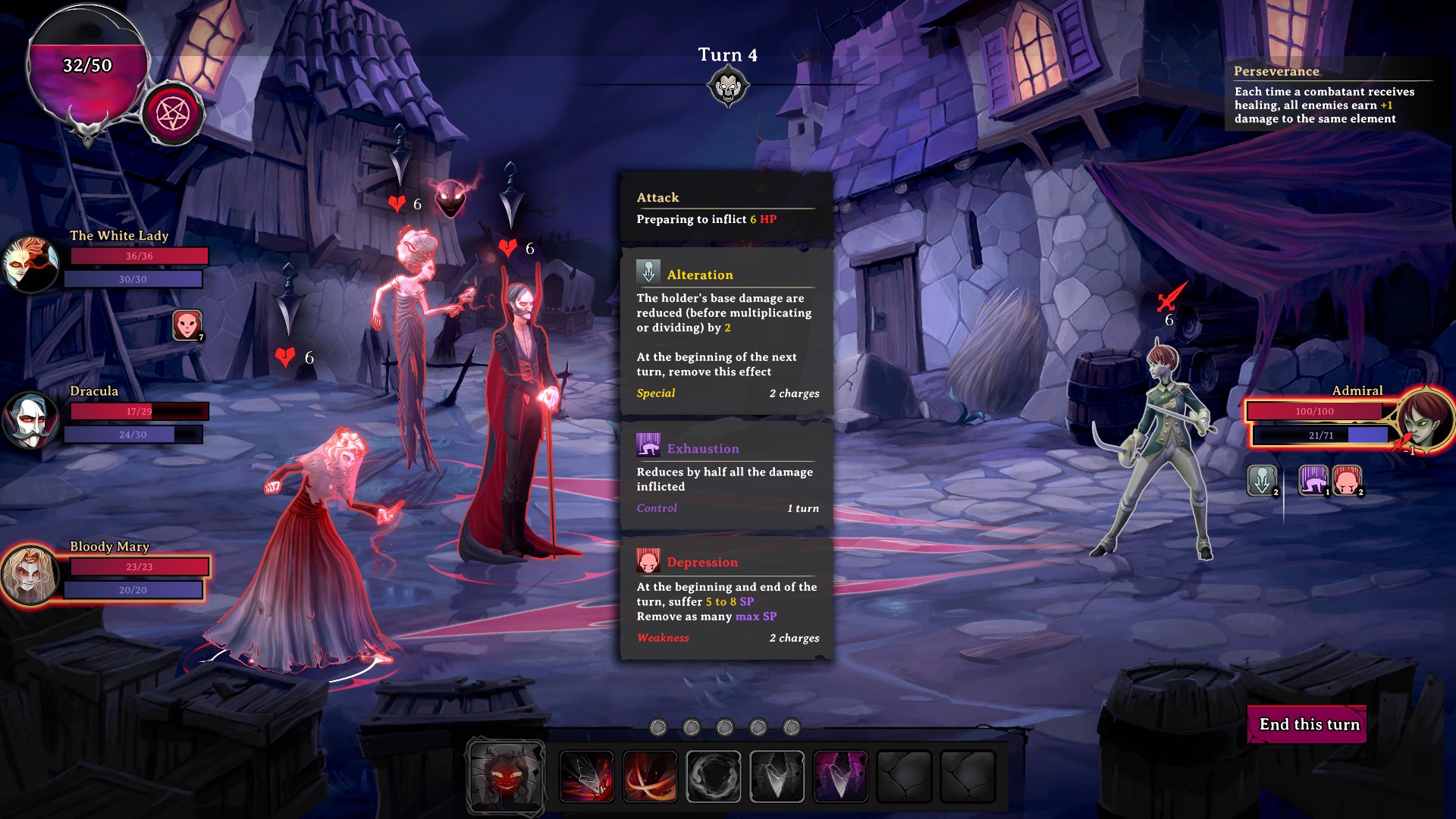
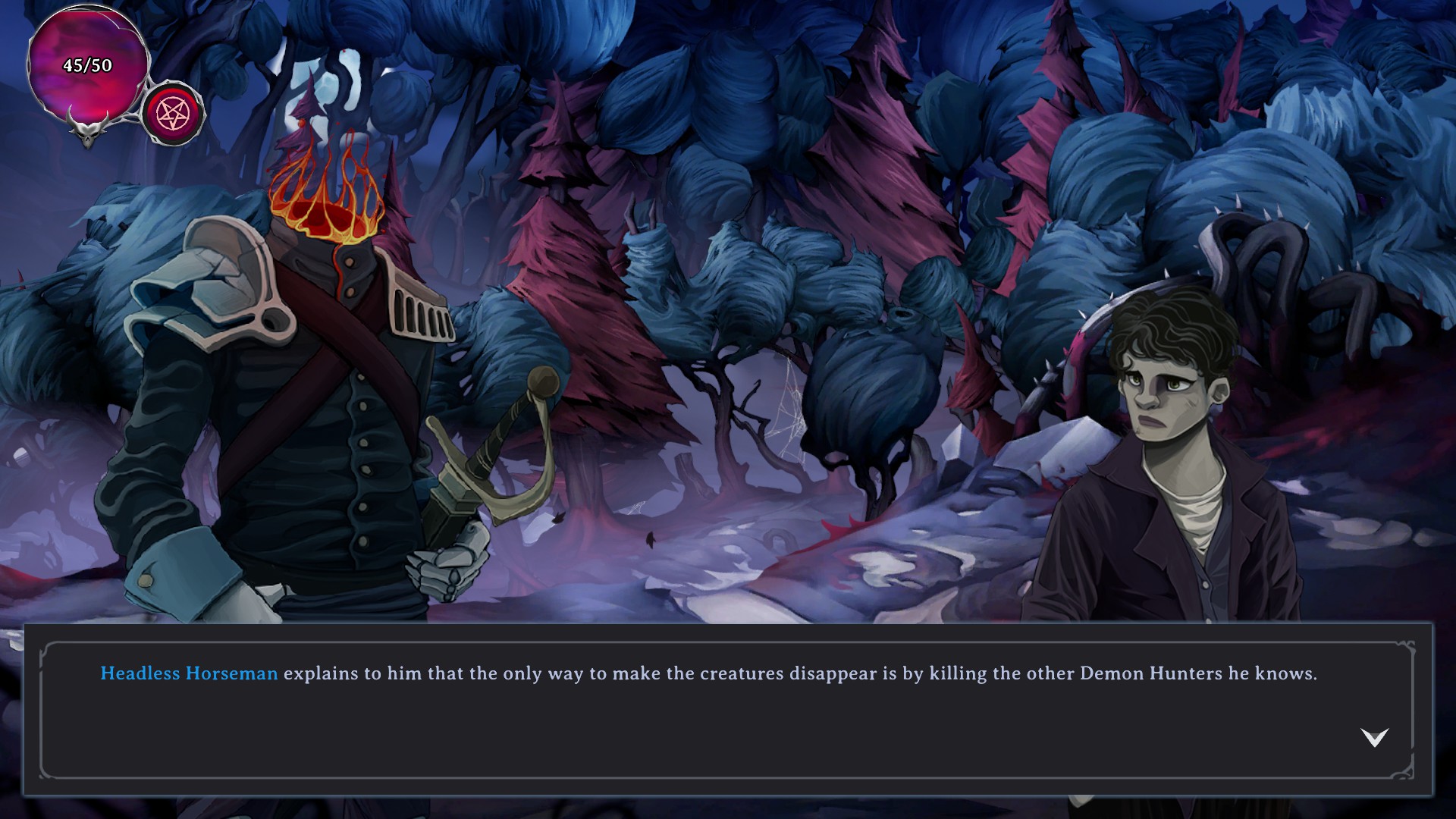





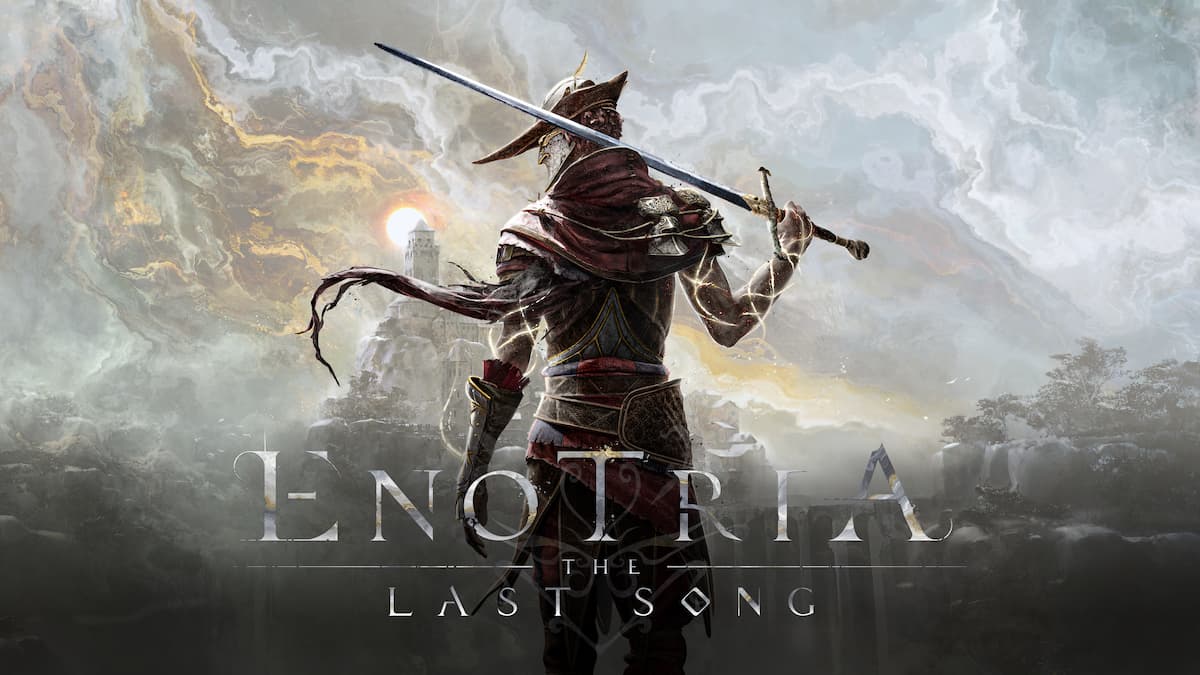
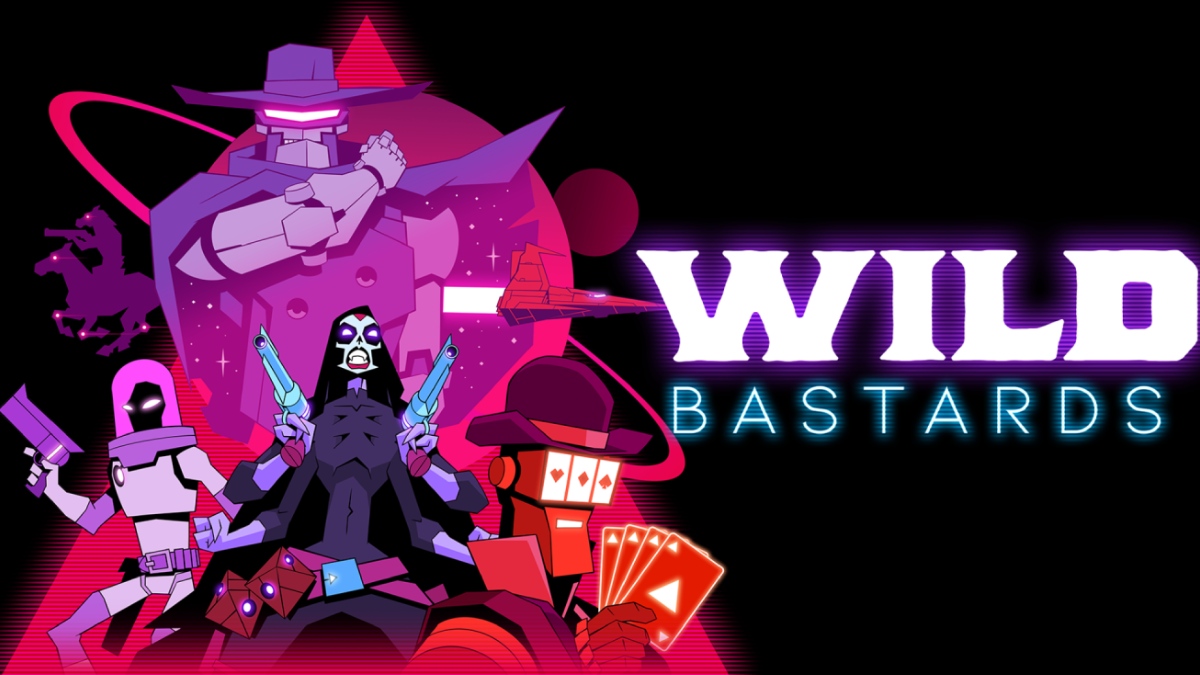

Published: Oct 7, 2021 04:25 pm